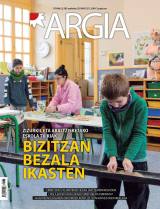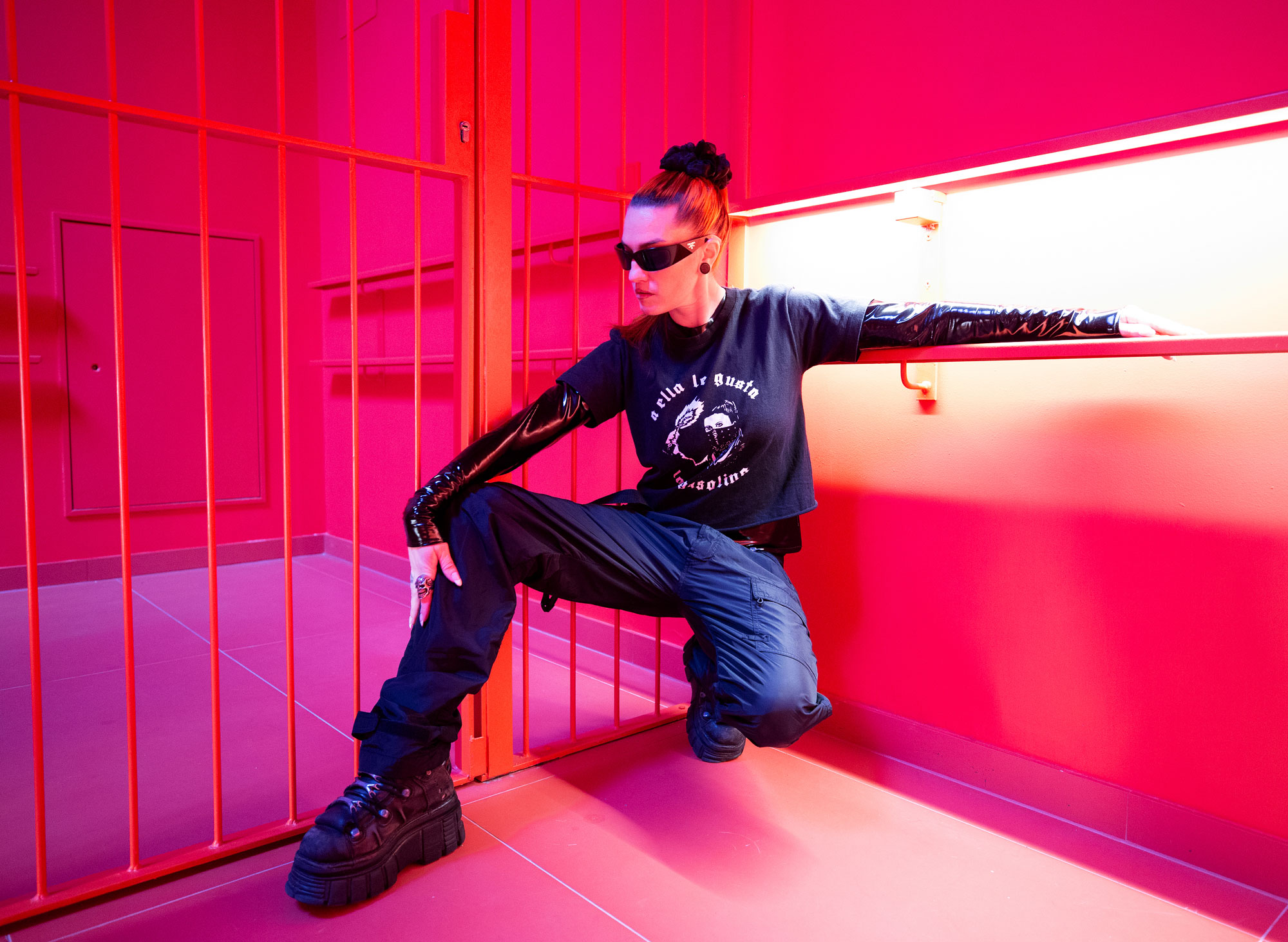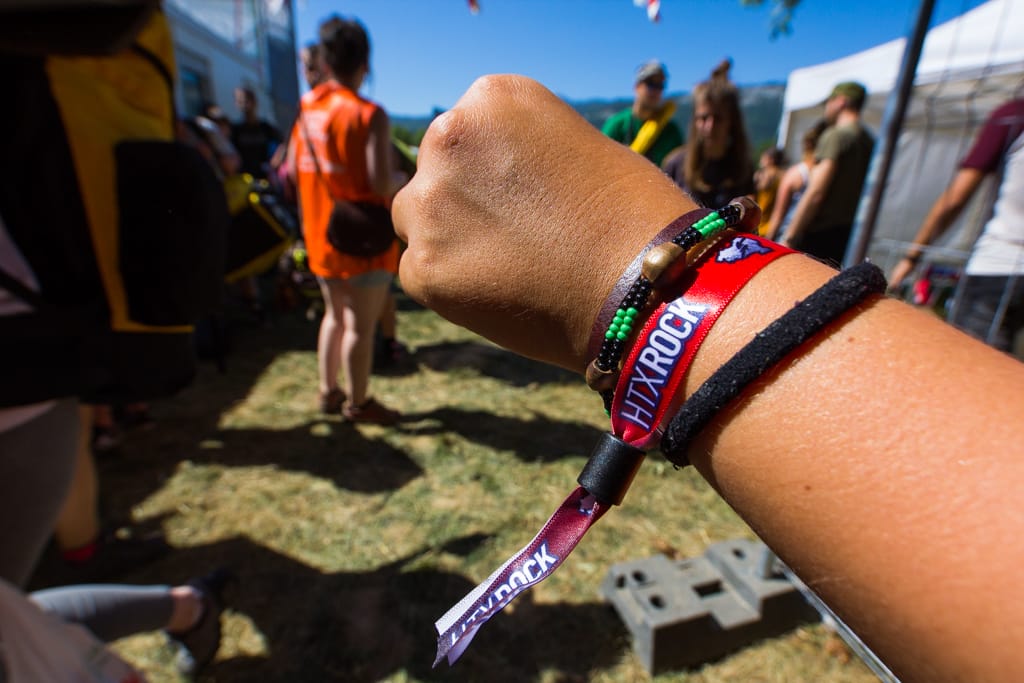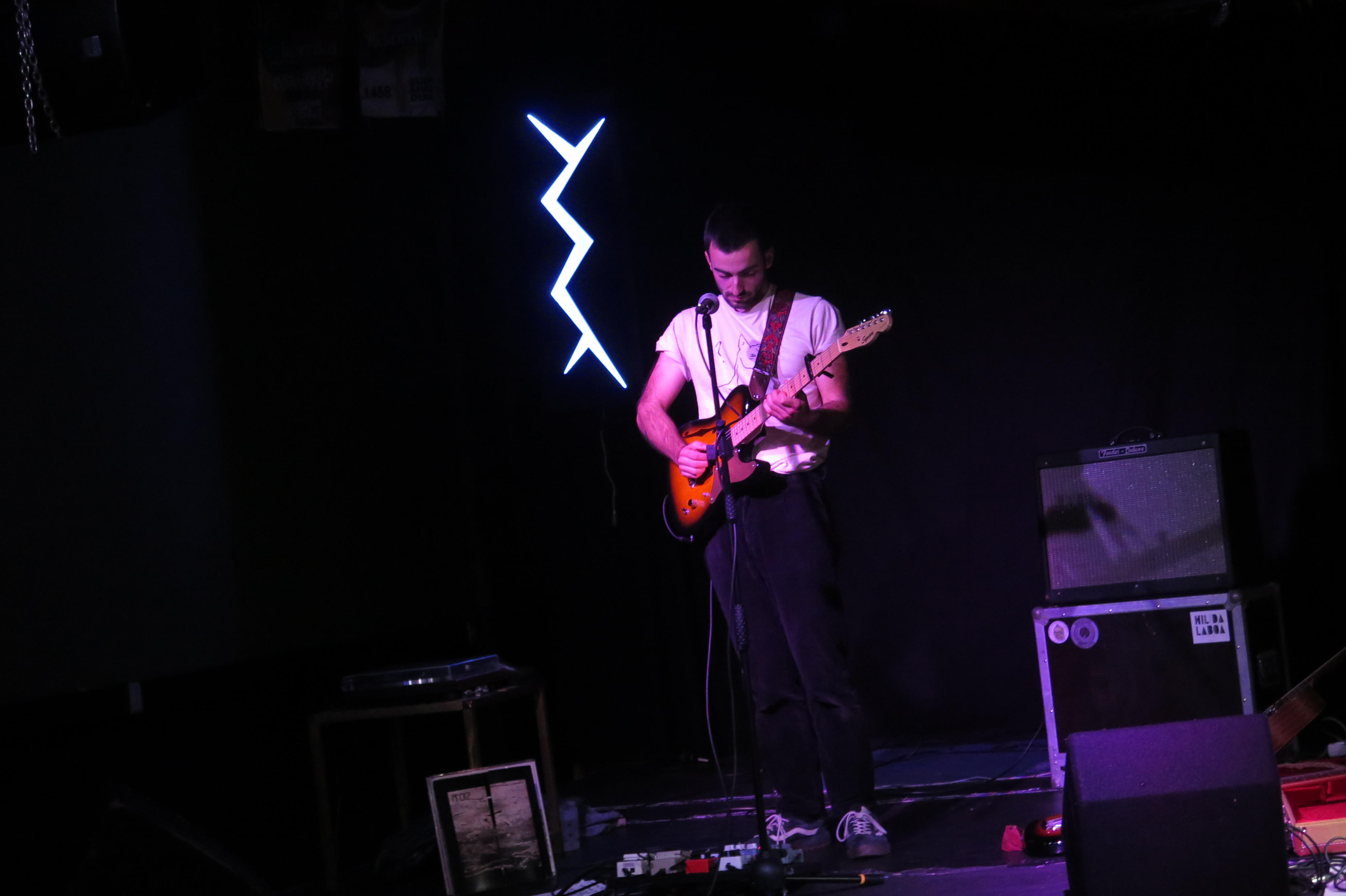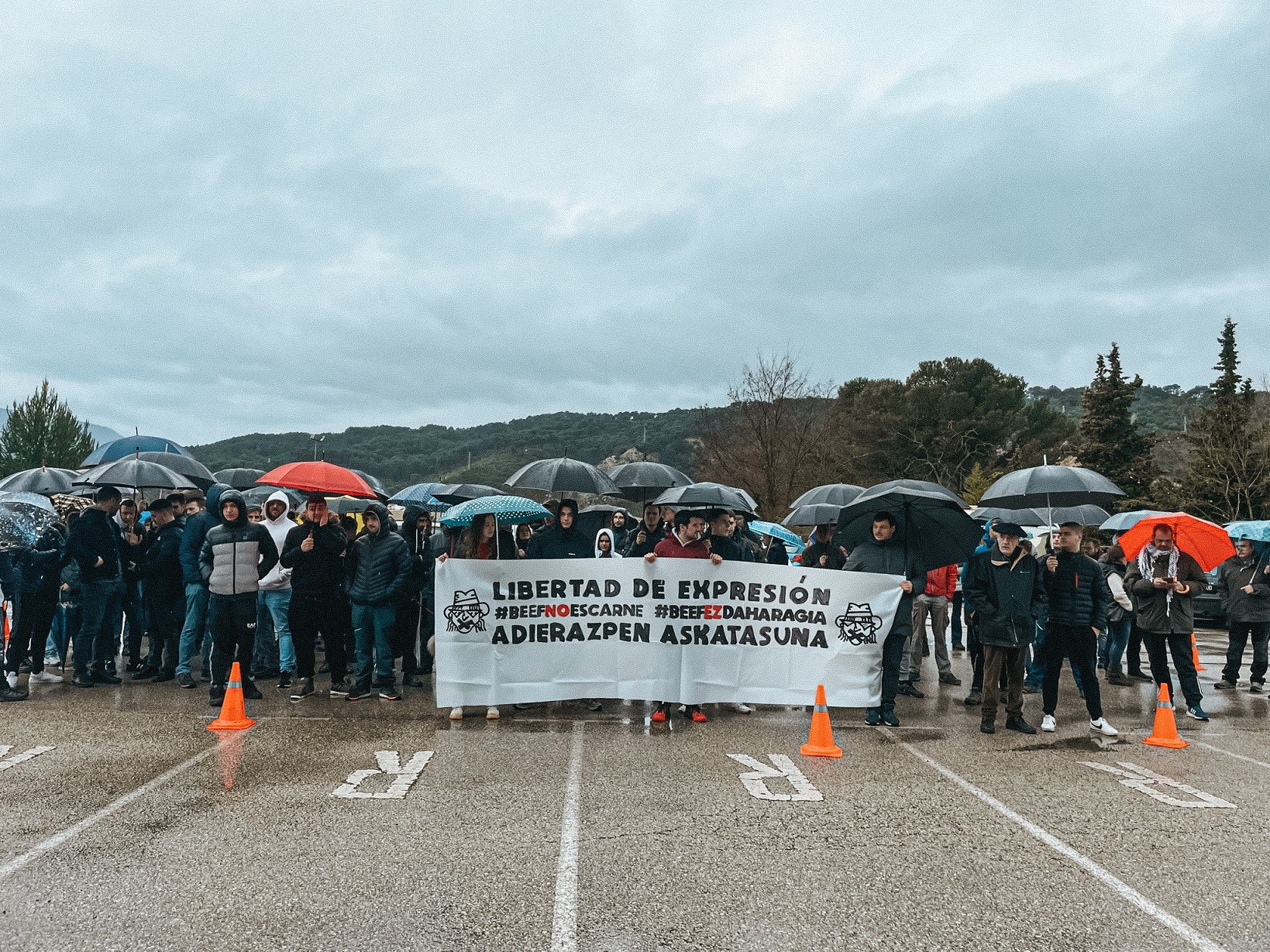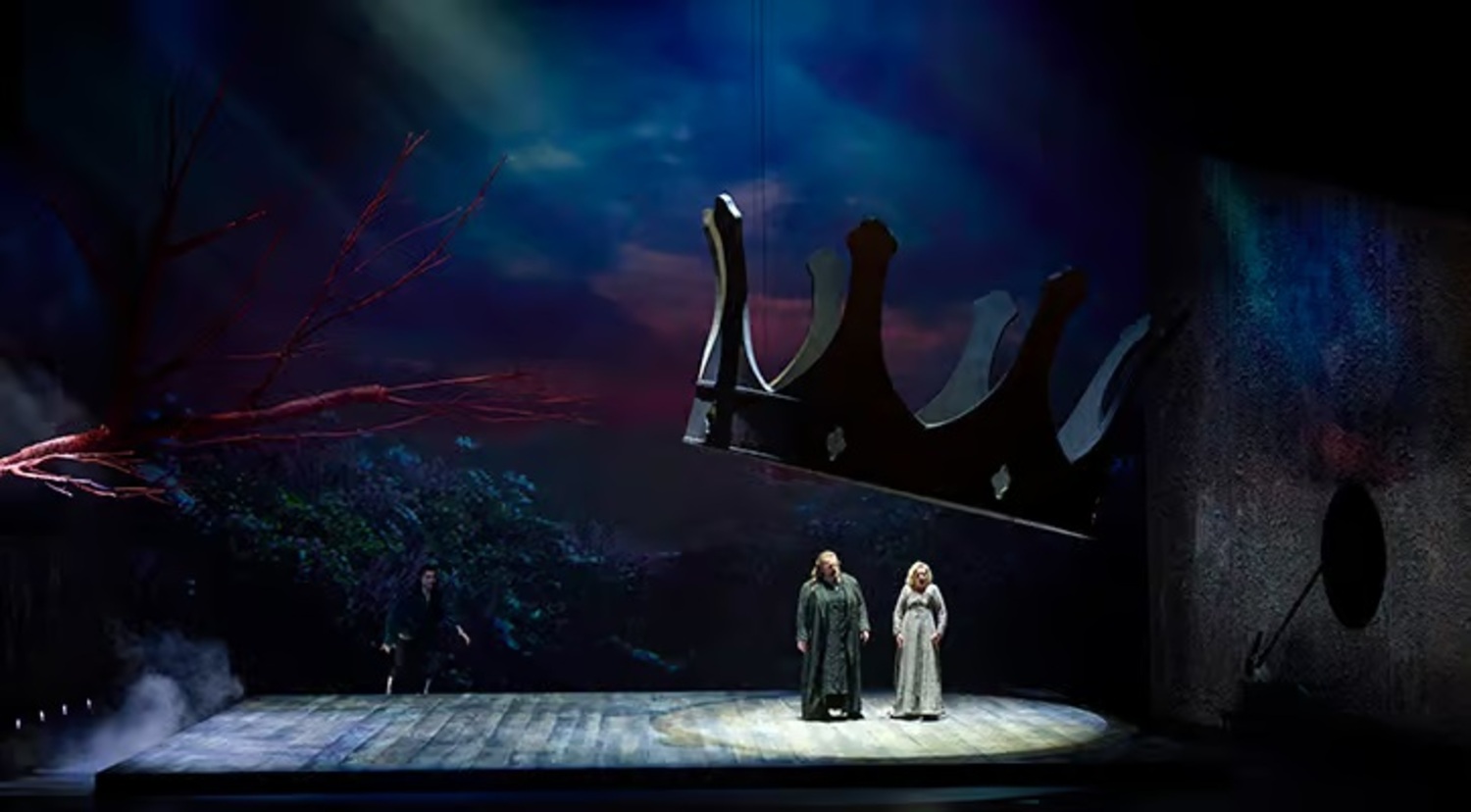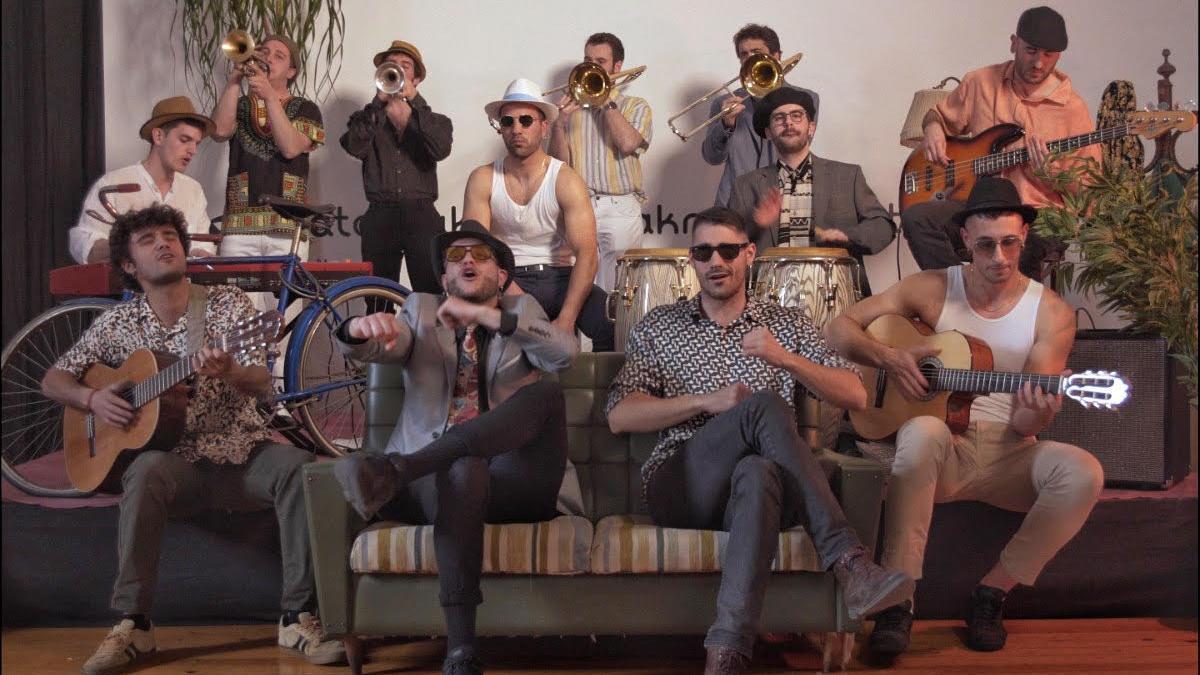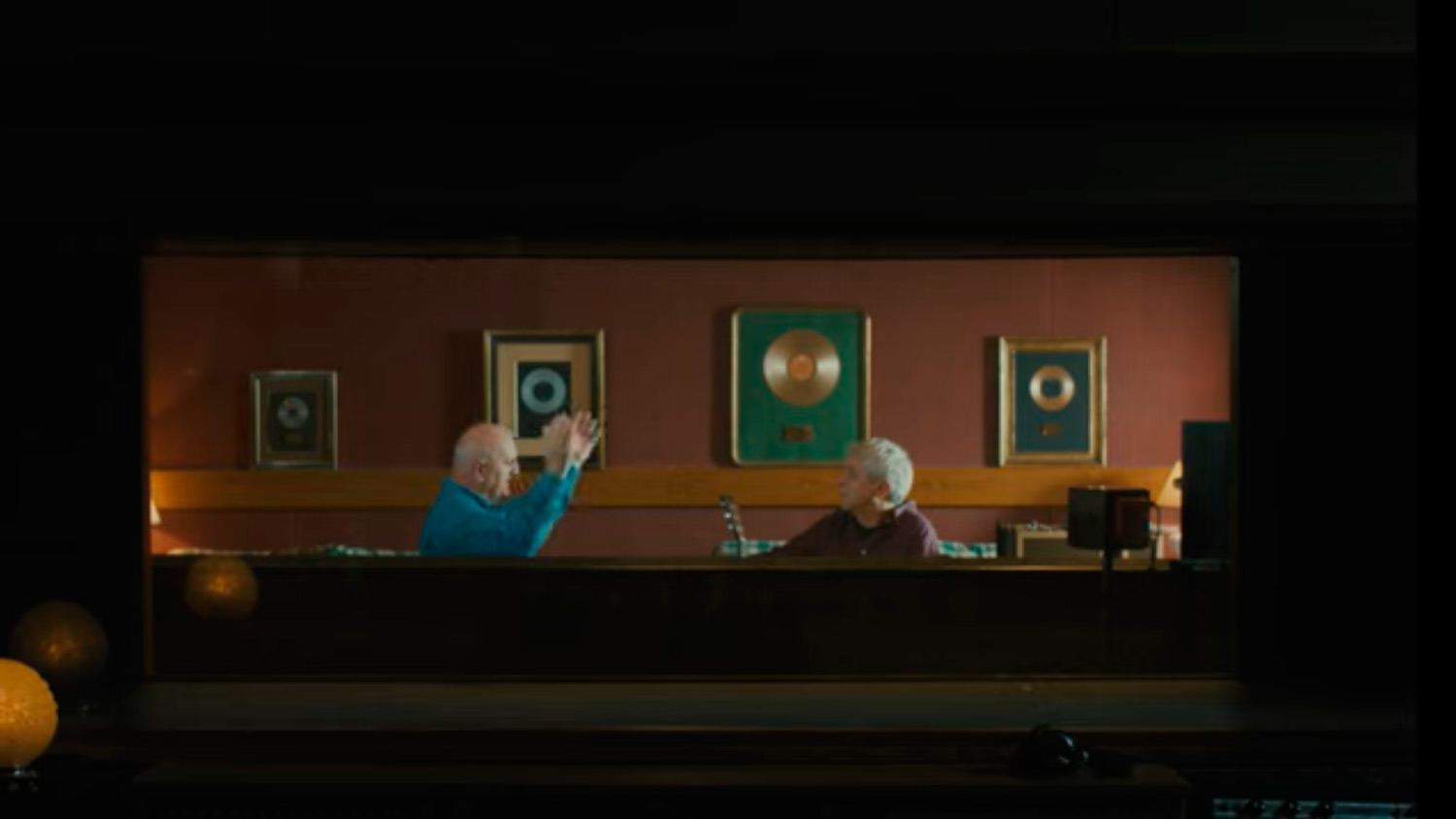"We wanted to pay tribute to the esteem of the work"
- The album Galdemouten Trilogia is the third work of the Mugaldekoak group (Gaztelupeko Hotsak, 2017). The group is offering concerts by towns. In Urretxu we agree with Edu Zelaieta (reading, voices), Beñardo Goietxe (vocals, electric and acoustic guitar), Raúl García Etxeberria (electric and acoustic guitar, musical sierra and voices) and the bass player Xavi Pérez Bull. Both the album and the recital of the scene deserve special attention.
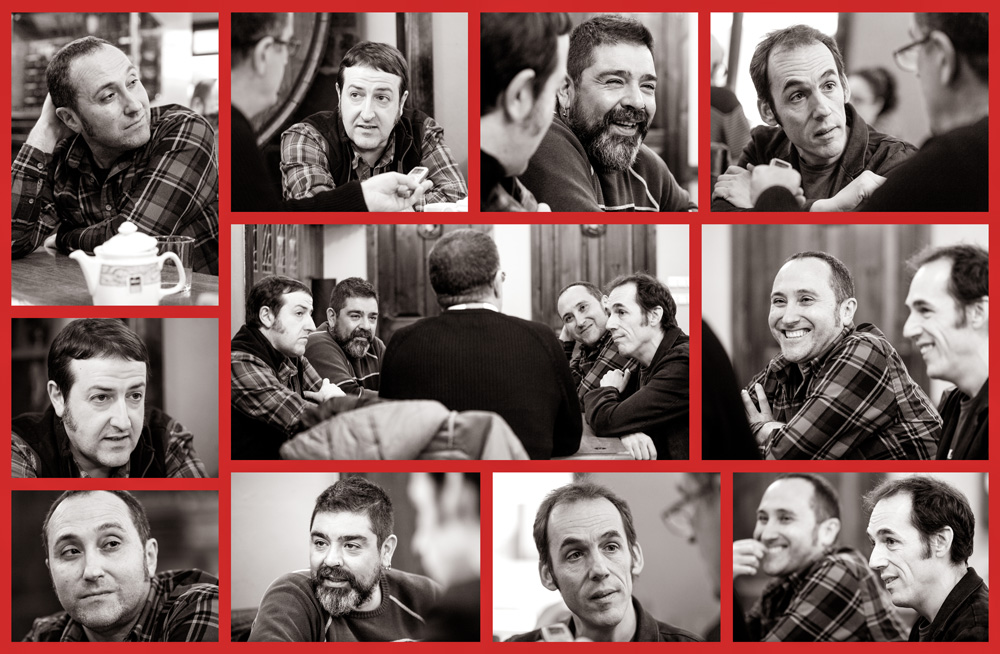
He was born 14 years ago. On the back of his project there is a book and three albums: Edu Zelaieta published in 2004 the book Mugaldekoak (Susa), from where “the characters became people,” Zelaieta tells us. At first, Goietxe, García Etxeberria and Zelaieta were in charge of presenting the book's musicated poems, and later, in 2006, they formed a record on the border of feeling more alive. In 2012 they published their second album, Begi leku, accompanied by several musicians. They were mainly versions of songs. The trilogy of the Galdemoados has just published its third album, always under the seal Gaztelupeko Hotsak. In addition to the Ander Barrenetxea battery, Idoia Guillena, Morau and Petti, among others, have also participated.
What news do you have, the third one?
Edu Zelaieta: Our initial dynamic was more literary because it was a session on the book, but as the group was formed the musicians have been imposing and gradually we have entered into a more musical dynamic. The direct we offer is like this, it looks like a concert. For a while, I had to click on Beñardo, because he has also written the lyrics of the songs.
Beñardo Goietxe: I have dared and I have encouraged myself, in a way, to contrast myself. But the things that he and I have done are probably clear. Or not? It's the usual question. Well, we've taken another step, the Mugaldekoak ones ever. In any case, Edu has been, is and will be the great hilarity of our words.
You have to guess life.
Edu Zelaieta:
“Mugaldekoak is not a professional but natural team. Everyone is at the limit of others and that is enriching.”
Zelaieta: You have to make sense of life. What's more, we live in the 21st century, and in addition to making sense of life, we have to reinvent ourselves to live. In that we are, in construction, you have a word that is being used more and more: personal, artistic, literary construction… Life is a beautiful challenge.
Life is marked by limits. Map piece by witness.
Goietxe: This is an adaptation of Edu’s most beloved poet, Wislawa Szymborska. We border people are the limits of the map. This concept has been between us from the very beginning and defines us well: Edu is from Vitoria, from Bera or from Bera. Raul and I from Bera, and now this Vilafranca del Penedès ditch. Said with affection... [laughter].
Xavi Pérez Bull: Yes, I live in Elizondo, after living in Lesaka, so I am also on the border. I was born between Barcelona and Tarragona, in the land of cava. I'm a musical militant, trained in groups like Inadaptats or Eina, tanned in the punk scene. I'm playing with these music friends that I didn't try before, I'm expressing myself differently, now with the bass. I'm happy, I took land in Bera, Beñardo is a professor of Euskera... I'm also a carpenter and amble from time to time with sheep.
Raúl García Etxeberria: I have been given a wider door to work on the compositions in a special way. We have done so between Beñardo and I so far, but this time I have made a more personal contribution, to make my way. I'm a professor of body expression and theater. I organize workshops with children and...; at the base I make music. In the Mugaldekoak group, my work is a branch of it, which I associate with everyday life.
Zelaieta: Each of us has its project. The border area is not professional, but natural. Everyone is on the limit of others, that is very enriching. I, as well as a professor, am a writer. Giving a melody to putting a letter is a terrible exercise, it enriches me. Others do too. If we Mugalde take out the fourth album, I will not be here, I will work on building bridges..." "Bravo! he joked.
Enemies around the song: Is it a good time to reconcile with enemies?
Goietxe:Enemies are always around us like friends. But the song says that enemies never value themselves as they should and are necessary, but maybe we have too many.
Of course, you are talking about the civil guard.
Beñardo Goietxe:
“Enemies never value themselves as they should and are needed, but perhaps we have too many.”
Goietxe: We have to leave the civil guards alone. As we sing to him in search of fungi, they look for fungi, they are badurnated with our words. But to the truth, there are enemies of others, some around us, others within us. We see the enemies out, but we have them inside. That's what the lyrics of the song talk about.
"It's all about power... says another piece. Also in the group? What does Catalan Basque say?
Xavi Bull: No, no, on the contrary, there is no hierarchy among us. Of course, everyone is clear about what they have to do in the group, what their role is, that creates a way of acting for themselves, but nobody tells anyone else, “you have to do this or the other.” The power among us is “popular”, if we have power it is popular, that is what I like.
Fear does not forgive,” you say in a song. A good song.
Zelaieta: Fear is universal, it catches all ages, people from all cultures. In the previous album we also worked on that topic. We have to know the fear and learn to manage it, sometimes we have to look at the fear face to face, die and bite up to five.
Iker Barandiaran just made a review of the album in ARGIA. Does Folk have limits? - said the chair owner.
García Etxeberria: I don't think Folk has any limits. But is ours folk? What we do is difficult to define. In the Basque Country there are folk, as many references come from America, melodies and letters. Beñardo's referents and the two, many, have come from there.
Xavi Bull:
“I’m doing with these music friends I didn’t try, I’m expressing myself differently with the bass now”
“Traditional medicine includes cabaret, rock baquillón, Arthur Lee’s soul and the elegance of surfing,” Barandiaran said.
Goietxe: What the music critic has done is personal, all journalists have a different comparison, but God ... It's an honor to compare it to Arthur Lee, because we like his songs and his style. In any case, this time we have gone beyond folk, as in the first two albums you can see a little more folk. Thanks to Raúl's electric guitar, the new album takes a little more rock. We work between folk and rock music lines.
García Etxeberria: Xavi, for its part, has brought a new rhythm to the album, to which it has set a spectacular rhythm of low. It's also live with us, and that brings the record and the performance closer. There's no battery directly, and you notice a little bit. I'm a hybrid of the world of string, play electric and acoustic guitar -- and guitar with a hand fan -- live, the musical sierra and the harmonica as well. Beñardo plays the acoustic guitar and also the electric, so we adapt live...
The styles are the ones you like all the Navarros the rancheras.
Xavi Bull: Yeah, it's true, I hear them on Xorroxin radio almost every day.
Goietxe: No doubt, on this no, but on the second album we made a version of My only way, a classic tex-mex. This time it's not a tex-mex, but there is some song from the field. It is one of those rafts looking for fungi, it has the touch of the accordion of Mexico… From Cinco Villas or Baztan to South America and North America a lot of people went to work, and from there it spread to all of Navarre. Ranches have also had a great influence on the other Basque territories.
Zelaieta: Although I am Navarro by my father, I am not from here. My father loved ranches, but that's universal. For example, the ranches, Joselu anaiak, are also heard in some places in Álava.
Are you mountaineers or mountain citizens?
García Etxeberria:
“I don’t think Folk has limits. But is ours folk? What we do is
difficult to define”
Zelaieta: The Mugaldekoak project is characterized by contrast, both in music and in letters. We are bordering one way or another, unintentionally, consciously and unconsciously. We like a lot of things, a lot of things not, and let's put things that we like on the record. The problem is knowing how to complete the cocktail well.
Goietxe: We make a musical and literary exchange, we introduce things from the world. We are all mountaineers, we all have little to do with the rural world, obviously we are also in the city. Every generation has made its way into the street in time. In our study we see this contrast, that of the mountain and that of the street.
You're vitalistic anyway. Hurrup! Singing credits it.
Zelaieta: We're a lot of things. In this album there are more rimated letters than in the previous ones. We've also had a kind of exercise or gymnastics. As for the procedure, these pieces are at the border, they are bridges between music and letters. At first, what we most musicated was the writings, and now the other way around, we put the lyrics to the music. We always walk on the border, on the one hand and on the other. Hurrup! The song is a witness to that.
Goietxe: We have included more dialects, that of the Five Villas and the mixed labortan, including the dialect of Edu de Vitoria. Among the limits of words, ours is multicolor, brown.
Speaking of the last working song, of the philosophy of the questions you deal with live: Has women stopped working from the world?
Zelaieta: In the album in general, there are many reflections and also a tendency to use the circus. In fact, the “interrogation mode” we use directly is the way we approach and fade the session. As is proposed in science as in philosophy, we want to do it the same way. The lyrics to that song are from a bluesman adapted by me, and yet it's a blues of working women from 1928, Mississippi.
García Etxeberria: It's very difficult for those words to pass from English to Basque, and to sing well, so we've given her a freer and broader treatment.
Goietxe: It could be a topic, but her mother, amatxi, is dedicated to women in the farmhouse and to working women today. We wanted to pay tribute to the esteem of the work. In general, the disc is made in that line.

Things aren’t easy in fact, and it will be for one reason or another, but lately I’ve bitten my tongue more than I should for these two things: the culture of the sold out and the FOMO – the latter perhaps has to be explained, because it’s not said so many times: the... [+]
Ultra
La Furia
Baga Biga, 2024
---------------------------------------------------------
Cascanteko La Furia-k bosgarren diskoa plazara atera du. Mimoz eta erraietatik, berarentzat funtsezkoak diren osagai horiekin, prestatu du honako pozima, pozoitsua eta aldi berean... [+]
EMEADEDEI + MAHL KOBAT
WHEN: February 2nd.
IN WHICH: In the youth center of Zuia, Murguía.
----------------------------------------------------
On September 20 of last year, we first heard about collective music in the profile of the social network they had just created:... [+]
Opera 'Tristan und Isolde'
Bilbao Symphony Orchestra. Directed by: Assisted by Erik Nielsen.
The Bilbao Opera Choir. Directed by: Assisted by Boris Dujin.
The stage director: To the Allex Eagle.
The soloists: I'm talking about R. Assisted by Nicholls, G. By Hughes Jones, M. The... [+]
Party and recreation. Oral History of Rock Radical Vasco
Javier 'Jerry' Corral
Books, 2025
------------------------------------------------
Javier Corral ‘Jerry’ was a student of the first Journalism Promotion of the UPV, along with many other well-known names who have... [+]
All
WHEN: January 18th.
IN WHICH: Jimmy Jazz of Vitoria-Gasteiz.
----------------------------------------------
I have a question in my mind lately: how much do things change in 30 years? Yes, reader, you guessed it: I’ve just turned three decades old. It will be a... [+]
Itoiz, udako sesioak filma estreinatu dute zinema aretoetan. Juan Carlos Perez taldekidearen hitz eta doinuak biltzen ditu Larraitz Zuazo, Zuri Goikoetxea eta Ainhoa Andrakaren filmak. Haiekin mintzatu gara Metropoli Foralean.
Sawdust
Olaia Inziarte
Panda, 2024
-------------------------------------------
Fourteen songs written during the Depression. Olaia Inziarte presented it in the first late night in Basque that can’t be mentioned now. The bru-ta-la piece Sawdust opens the disc. A jazz... [+]









